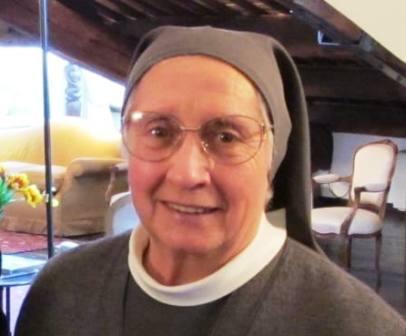
The suffering of the victims of human trafficking are the crucifixes of the 21st century, and Pope Francis will lead the traditional Way of the Cross in an extension of the Calvary of Jesus.
Jesus is crucified every time cruelty and dehumanization is inflicted on a another human being- and the horrors inflicted by traffickers on women and children, are indeed among the gravest of cuts inflicted upon the body of Christ – this is the story of the 2019 Way of the Cross meditations.
This year, Italian anti-human trafficking leader Sister Eugenia Bonetti, a Consolata missionary, was entrusted with writing the reflections for the traditional Way of the Cross that Pope Francis will lead at the Colosseum on Good Friday, usually attended by tens of thousands of people and followed on TV by millions around the world.

After spending 24 years in Kenya as a missionary, from 1967 to 1991, Sister Eugenia has been continuing her fight against human trafficking in Italy, focusing on helping women and girls to leave prostitution. In 2012, she founded Slaves No More, an association that helps women start a new life in their countries of origin.
Her long-standing commitment with women has been recognized several times. In 2007, she received the U.S. secretary of state’s International Women of Courage Award. She was also among the winners of the European Citizen’s Prize in 2013, and she received the Order of Merit, Italy’s highest honor, in 2014.
“To celebrate Via Crucis doesn’t mean to remember a fact that happened 2,000 years ago, but to listen to the suffocated voice of new crucifixes of history, in which Jesus’ Calvary is being extended,” she told Avvenire, the newspaper of the Italian bishops’ conference. Confessing she initially felt embarrassed by such responsibility, she explained how she finally found inspiration: “I put the past 26 years of my existence in the reflections; they were the toughest and at the same time the richest years of my life. I put all the women I met in the Calvaries of our paths, their pain as well as their daily resistance to keep a shred of humanity,” she said.
Sister Eugenia is the sixth woman to write the Way of the Cross meditations at the Colosseum. The first was Mother Anna Maria Canopi, a Benedictine abbess, in 1993. Two years ago, in 2017, the Holy Father chose French biblical scholar Anne-Marie Pelletier, laureate of the 2014 Ratzinger Prize.
Pope Francis has always been particularly sensitive to the plague of human trafficking. In 2014, he brought together several world religious leaders at the Vatican to sign a joint declaration against “modern slavery, in terms of human trafficking, forced labor and prostitution, organ trafficking” as a crime against humanity.
“We women, and especially religious and missionary sisters, are called into question, because for us fighting against human merchants is a great challenge. The dignity of the person cannot be bought, bargained or sold,” she once told a journalist
In 2015, on Sister Eugenia’s recommendation, the Pope instituted the World Day of Prayer and Reflection Against Human Trafficking Feb. 8, the feast of St. Josephine Bakhita, a Sudanese slave who became a nun in the last century and who is considered a patron for trafficking victims.
At the approach of Holy Week, a four-day international conference entitled “Pastoral Orientations on Human Trafficking,” organized by the Vatican’s Dicastery for Integral Human Development, was held in Rome. The April 8-11 conference culminated in a private audience between the various participants and Pope Francis in the Vatican Synod Hall.


